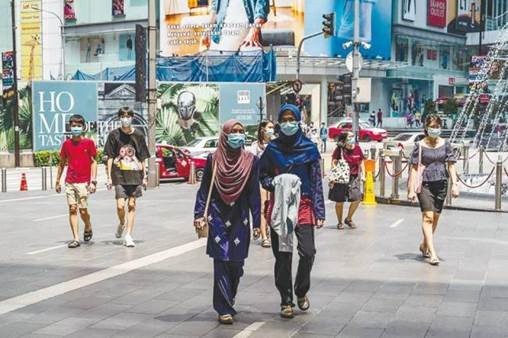
PETALING JAYA: Analysts say the government has sufficient fiscal space for the expansionary stance in Budget 2021 which amounts to RM322.5 billion, Malaysia’s largest to date.
According to MIDF Research head of research Imran Yassin, the green light that was obtained in parliament to raise the debt-to-GDP limit has granted it that fiscal space.
“Besides, we have to remember that we are facing unprecedented times and not the only country facing the Covid-19 pandemic,” he told SunBiz.
“We have observed that countries, both developed and developing, have expanded their budgets to moderate the impact of the pandemic on their economies.”
Imran opined that the budget is essential to ensure that Malaysia’s economy remains resilient and is ready for the revitalisation space.
He believes success in the revitalisation of the economy will translate into better management of the fiscal space moving forward.
Sunway University Business School Professor of Economic Dr Yeah Kim Leng is of the view that a temporary spike in domestically funded government borrowings is not a concern as long as the government embarks on fiscal consolidation when the economy recovers fully and sustainably from 2021 onwards.
“The expansionary budget meets market expectations that higher government spending is needed to sustain the economic recovery in 2021 while keeping the projected fiscal deficit smaller than in 2020,” he said.
Based on the finance ministry’s Fiscal Outlook Report 2021, the government’s revenue stood at RM227.3 billion this year, a 14% decline from RM264.4 billion in 2019 on the back of lower tax collection.
In 2021, government revenue is projected to turn around by 4.2% to RM236.9 billion or 15.1% of GDP driven by improving economic growth and better business prospects.
The increase in revenue is expected to be contributed by a higher tax revenue collection, estimated to increased by 13.8% to RM174.4 billion, whereby direct and indirect tax are expected to rebound by 14.6% and 11.4% to RM131.9 billion and RM42.5 billion respectively as Malaysia’s economy resumes its growth path.
However, Damansara MP Tony Pua expressed his reservation over the government’s projected 18% increase in income tax contribution to the revenue following a 1% cut that was proposed in the Budget 2021.
He told a media outlet he was shocked that a significant chunk of the increase in revenue is coming from personal income tax, which is from RM35.9 billion to RM42.4 billion in 2021. Pua was reported as saying he is unsure how the government could announce a reduction in personal income tax and expect an increase in income tax revenue simultaneously.
The MP said that he will raise his concerns during the budget debate which will be held later.
Meanwhile, Yeah welcomed the emphasis given to the health sector.
He also welcomed the combination of mega infrastructure projects as well as the small and medium construction projects for G1-G4 contractors, which will see a better spread of benefits across a broader base of construction firms as well as a wider geographical coverage.
The economist pointed out that there are continuing wage subsidies on a more targeted basis for the retail, tourism and transport-related industries but the magnitude and coverage are smaller as the economy is expected to be on a strong growth footing.
He hoped that the expansionary approach will boost overall consumer and business spending which would translate into a second round effect that will benefit the rest of the economy.
“Still, it is likely that some weak and distressed SMEs will exit their industries due to continuing weak and uncertain demand and consumption patterns brought about not only by Covid-19 but disruptions by digital technology as well.”
Meanwhile, Baker McKenzie International member firm, Wong & Partners’ tax, trade and wealth management practice partner Yvonne Beh welcomed the move by the government to continue to ensure Malaysia remains attractive to foreign investments in high-value services activities by relaxing the conditions to the Principal Hub tax incentive and its extension to Dec 31, 2022.
She also commended the move to woo more companies to make the country their trading hub with a new tax incentive, Global Trading Centre.
“It is also a strategic decision to extend the tax incentive for companies relocating their operations to Malaysia, as it ensures that Malaysia continues to be an attractive location for companies looking to restructure their supply chain amidst geopolitical tensions.”
Source: https://www.thesundaily.my/business/adequate-fiscal-space-to-accommodate-malaysia-s-largest-ever-budget-say-economists-KK5048084

